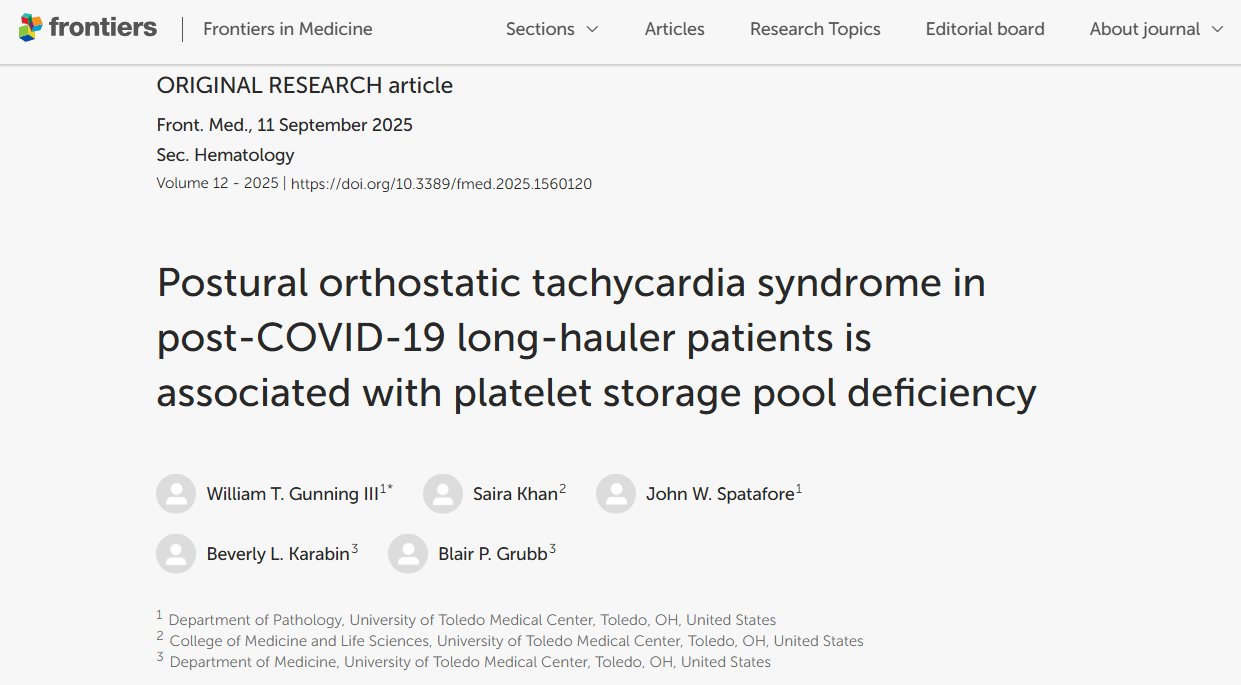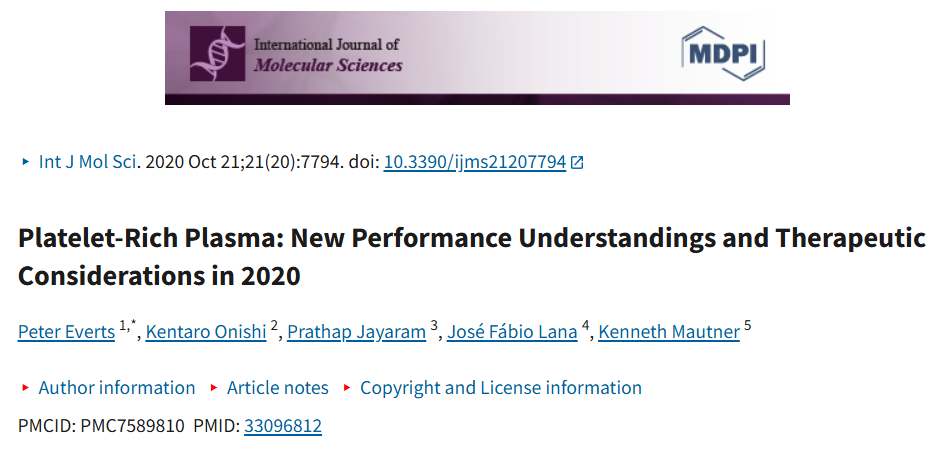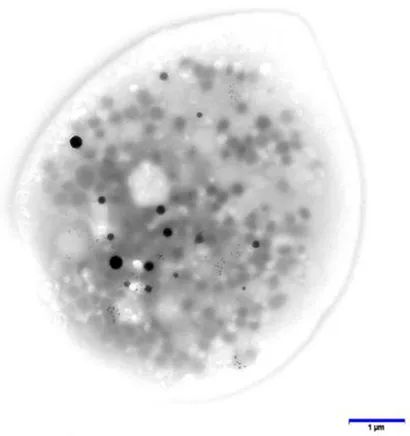
Steven Murphy Highlights New Research Linking POTS Platelets to Storage Pool Deficiency
Steven Murphy, Medical Director, Concierge Medical Associates, shared a post on LinkedIn:
“Are POTS patients’ platelets different? Should we be avoiding PRP in them?
What about in patients with Long COVID and POTS?
An interesting research article was published
“Postural orthostatic tachycardia syndrome in post-COVID-19 long-hauler patients is associated with platelet storage pool deficiency”
Title: Postural orthostatic tachycardia syndrome in post-COVID-19 long-hauler patients is associated with platelet storage pool deficiency
Authors: William T. Gunning III, Saira Khan, John W. Spatafore, Beverly L. Karabin, Blair P. Grubb

Read more here.
Both POTS groups have δ-SPD, AKA dense (delta) granule storage pool deficiency. There also is a genetic version, but this was not assessed in this study.
PRP has 7 fundamental proteins: platelet derived growth factors (PDGF), transforming growth factor–β (TGF-β), vascular endothelial growth factor (VEGF), epidermal growth factor (EGF), and adhesive proteins – fibrin, fibronectin, and vitronectin…. we think these are the main factors in the success of it.
But my main man Peter A. Everts, PhD, FRSM reviews even more factors.
Title: Platelet-Rich Plasma: New Performance Understandings and Therapeutic Considerations in 2020
Authors: Peter Everts, Kentaro Onishi, Prathap Jayaram, José Fábio Lana, Kenneth Mautner

Read more here
Dense granules effect platelet activation and Alpha granules contain good stuff. I also add, mitochondria can travel between cells and I posit also help healing in the injured tissue.
But the problem I have is this: Both scenarios above point to platelets that are not “normal”: in long COVID POTS they may be chronically activated/exhausted, and in regular POTS they have intrinsic granule deficits. These features overlap with the concept of platelet senescence or aging. As platelets age (or undergo repeated activation), they lose granule content and responsiveness while gaining pro-inflammatory behavior.
A 2025 review on platelet aging notes that senescent platelets display reduced granule content, impaired responsiveness, and heightened pro-inflammatory factor release, all of which can compromise tissue repair processes.
So I ask all OBX brothers and sisters, what do you do with your POTS or Long COVID POTS patients?
I will be investigating this on my substack next week”

Stay updated with Hemostasis Today.
-
Feb 23, 2026, 14:45Stacey McGeown: Rare Disease Awareness Day at QUB Marks the Start of Rare Disease Month
-
Feb 23, 2026, 13:53Rare Diseases, Plasma-Derived Medicines and the Elephant in the Room – Part 1
-
Feb 23, 2026, 13:02Deepak Yadav: What 2025 Evidence Tells Us About Stroke Care
-
Feb 23, 2026, 12:55Radoslaw Kaczmarek: Will AAV Gene Therapy for Hemophilia Trigger Tumorigenesis?
-
Feb 23, 2026, 12:46Heghine Khachatryan: More Granular Risk Stratification Framework for PE from The New 2026 AHA/ACC Guideline
-
Feb 23, 2026, 12:37Reza Shojaei: EU’s Critical Medicines Act and Plasma Resilience
-
Feb 23, 2026, 12:32Anirban Sen Gupta: Emily Mihalko Highlights PlateChek at MTEC
-
Feb 23, 2026, 12:25Ryan Williams: Excellent Highlights on The Heterogeneity of PRP Preparation
-
Feb 23, 2026, 12:10Peter Libby: hsCRP May Select Patients Who Can Benefit From Statins or Anti-inflammatory Therapy

